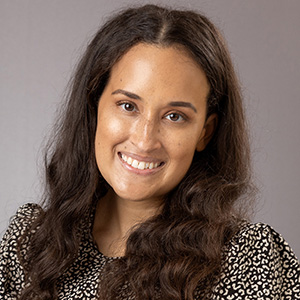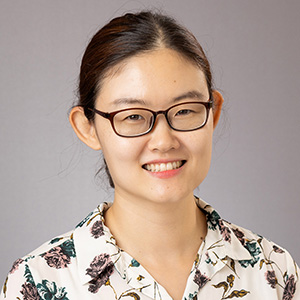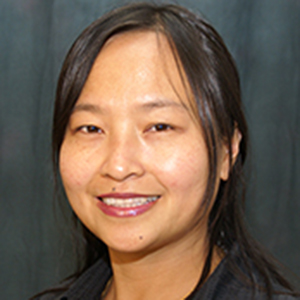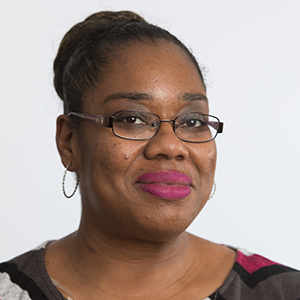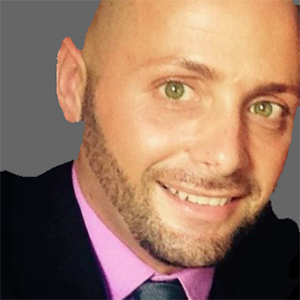Achieve your CACREP Accredited Masters at Rutgers
Interested in earning a masters in clinical mental health counseling? As a student in our program, you’ll gain the specialized knowledge, skills, and ability to counsel people with mental health conditions including those with serious mental illness to assist them to manage their condition and to promote recovery and wellness.
Why Study for a Degree in Counseling at SHP?
There is a high demand in New Jersey and the surrounding geographic area for counselors with knowledge and skills in clinical mental health counseling and rehabilitation counseling. Most graduates work in community based, non-profit agencies providing mental health and other services for persons with disabilities, addiction treatment facilities, community rehabilitation provider agencies, and state vocational rehabilitation and other government human services agencies including the U.S. Department of Veterans Affairs (VA).
Program Highlights
Our 60-credit degree is designed to advance the career of experienced people already working in the human services field, as well as prepare people to enter the field. Students have the flexibility to pursue a degree full-time or part-time, on campus or online.
Fast Facts:
-
- High demand and robust market for graduates in this field in New Jersey and the surrounding region, as well as nationally.
- Comprehensive curriculum and supervised clinical experience in counseling
- Develop special expertise in counseling individuals with serious mental health conditions.
- Options to take your courses at the Rutgers campus in Piscataway, or the Rutgers campus in Camden, or online.
- Complete the degree in two years or three years.
Program Overview
Our program’s cognitive behavioral counseling approach focuses on helping clients develop strategies and skills to change problematic behaviors, cope better with difficult situations, manage their disability, and plan for the future. The comprehensive curriculum includes theory, research, ethical practices and decision-making, development of interpersonal and counseling skills and supervised clinical experience in counseling.
Clinical Mental Health Counseling focuses on helping people manage or overcome mental and emotional disorders and problems with relationships. Clinical mental health Counselors work with clients to develop strategies and skills to minimize the effects of their disorders or illnesses including developing and implementing strategies to encourage wellness.
With our program’s emphasis on preparing students to provide evidence-based practices to individuals with serious mental health conditions to promote recovery, students also learn needed knowledge, skills, and attitudes related to assisting clients to achieve their personal, psychological, social, and career goals.
Program Mission
The mission of the program is to educate individuals to be socially responsible counseling professionals who will work competently, creatively and collaboratively with and within the community in an environment of diversity so that persons in the community including those with psychiatric and other disabilities are empowered to pursue personally important goals including career with success and satisfaction. We also seek to address New Jersey’s ongoing needs to prepare counselors with specialized expertise in providing counseling in community settings for people with disabilities of all types, including psychiatric, physical, sensory and developmental.
The program specializes in preparing students to deliver counseling and other services to people with serious mental health conditions. As part of addressing this need, the program seeks to develop counselors who have expertise in counseling individuals with serious mental illness including knowledge and skills in providing evidence-based practices for counseling and other services for such individuals. The increased availability of counselors with this expertise is expected to benefit persons with disabilities as well as their families and communities by providing community-based counseling services to enable such individuals to enhance their quality of life including their ability to manage their disability, live independently, get and keep employment, gain an education, and form social relationships and networks.
Additionally, students are prepared to consider the community as a client and deliver needed direct and indirect services in this context. To prepare students to address these needs, the curriculum emphasizes developing critical thinking, providing counseling services in an environment of diversity, learning and using evidence-based practices, and adhering to ethical standards. The mission of the program is consistent with that of SHP in serving both individuals and the community.
Program Objectives
Objectives for the degree program include:
- Preparing at the master’s degree level highly qualified counselors prepared to work in a variety of community settings and provide services to persons from diverse populations in a multicultural and pluralistic society including persons with psychiatric and other disabilities
- Increasing the supply of qualified professionals with special expertise in counseling persons with disabilities to provide community-based counseling services for New Jersey and the surrounding region. Seeking to address the long-standing shortage of master’s level counseling practitioners with this expertise to serve communities in New Jersey, we are the only university in New Jersey offering graduate counselor education in this specialization. This includes increasing the supply of qualified practitioners throughout the state by offering the degree regionally at two campuses as well as online.
- Evaluating and improving curriculum and other program elements to assure that standards of the Council for Accreditation of Counseling and Related Educational Programs (CACREP) including relevant specialization standards continue to be met.
- Increasing awareness of this degree program in the counseling community as well as in the larger New Jersey community and surrounding regions to recruit and enroll adequate numbers of students.
- Developing certificate programs and/or courses to meet the needs of counseling professionals who wish to upgrade their qualifications and credentials in various areas of specialization.
- Providing a career ladder for individuals who have obtained a bachelor’s degree related to human services and are interested in completing professional preparation as a counselor.
- Seeking funding including grants to assist students with tuition.
- Expanding affiliations to provide students with a variety of counseling practice opportunities in the community.
- Developing faculty practice with an emphasis on community service.
To accomplish the mission of the program and to prepare program graduates to work in a variety of settings including community agencies, government agencies, and other community-based services, we offer students broad knowledge of the counseling field including theory, research, ethical practices and decision-making, and a well-developed set of interpersonal and counseling skills. The curriculum educates students in the knowledge base of the field including current research combined with supervised clinical experience in counseling to practice that knowledge base. It is recognized that interaction between these elements is essential.
Counselors have extensive contact with other helping professionals, paraprofessionals, self-help groups, community leaders, and other members of the community. The faculty is committed to the development of program graduates who can work competently, creatively and collaboratively with individuals from a variety of backgrounds. As part of accomplishing this, students are encouraged to learn about existing community resources and make maximum use of them in their counseling as well as assess needs for resource creation or modification to meet identified community needs.
Program graduates are also prepared to work with the wider environment as consultants, advocates and change agents. Besides proficiency in working with clients to modify their behavior to accomplish goals, proficiency is developed to interact with the environment to negotiate and, if needed, modify the environment in the interests of providing high quality services to clients.
Faculty members seek to promote an open environment for the consideration and discussion of a wide variety of theories and points of view. As part of this orientation, information and methodology from a range of disciplines are presented and discussed. In promoting understanding of the complexity of human behavior, all the behavioral and social sciences need to be considered. In teaching professional counseling skills, many faculty members have training and experience in cognitive and behavioral counseling approaches such as the Choose-Get-Keep approach for assisting individuals with mental health conditions to choose, get and keep goals of their choice in the community.
Key tenets of this approach include active involvement of the individual in planning and goal setting, behavioral improvement in the environment of need in the community as a critical outcome, and a primary focus on improving competency to assume community-based roles. The uniqueness of the individual is emphasized with choice, empowerment and growth identified as core values. Services are individualized for the person’s needs and preferences as part of the counseling relationship with a focus on the identification and use of personal strengths.
Through professional counseling practice, the process of finding or renewing purpose and meaning in life is enhanced as individuals gain or regain roles they prefer and value in the community. Among the roles individuals are interested in attaining and maintaining are worker, student, independent community resident, and member of a social network. As part of assisting individuals to attain and maintain valued roles, wellness and recovery approaches are addressed. In planning the curriculum, faculty emphasize learning about evidence-based and promising practices for counseling and service delivery, in particular, practices designed to provide counseling and other services for individuals with serious mental health conditions.
The faculty encourages applications from individuals from various backgrounds interested in studying for this degree. We recognize this need as part of preparing to serve clients in our pluralistic society and welcome applications from a wide variety of personal, work, and educational backgrounds.
All Department faculty members strive to create an environment rich in opportunities, experiences, and knowledge that enhances the education of our students. We are committed to the highest standards of excellence in preparing the professionals of tomorrow. We seek out the latest research to inform our academic and professional practice, and share our knowledge in a stimulating, friendly and professional atmosphere.
Per the U.S. Bureau of Labor Statistics, employment of substance abuse, behavioral disorder, and mental health counselors is projected to grow 17% from 2024 to 2034, much faster than the average for all occupations.
Bureau of Labor Statistics website
There is a high demand in New Jersey and the surrounding geographic area for counselors with knowledge and skills in clinical mental health counseling. Most graduates work in community based, non-profit agencies providing mental health and other services for persons with mental heath conditions, substance use and addiction treatment facilities, and state and federal government human services agencies including the U.S. Department of Veterans Affairs (VA).
The Rutgers School of Health Professions M.S. Rehabilitation Counseling, Clinical Mental Health Counseling meets the educational professional licensing requirements of the following states:
AL, AK, AZ,, CO, CT, DE, GA, , HI, ID, IL, IN, IA, KS, KY, LA, ME, MA, MI, MS, MO, MT, NE, NV, NH, NJ, NM, NY, NC, ND, OH, OK, OR, PA, RI, SC, SD, TN, TX, UT, VT, WA, WI, WY, PR
The degree does not fully meet the educational professional licensing requirements of the following states: AR, CA, DC, FL, MD, MN, VA, WV. Please see additional information about these state’s requirements below. An elective course (PSRT6024) in counseling children, adolescents, couples and families is available as part of the degree. This course may meet requirements for coursework in the area of marriage and family counseling. Students interested in licensure in a state in which this is a requirement should check directly with the licensure board of that state.
Students should be aware that states may have additional requirements for counselor licensure such as supervised post-master’s counseling experience. Students should check directly with the licensure board of the state where they would like to be licensed for complete requirements of that state.
Updated: November 2024
AK -missing requirements: courses in Family & Relationship, Use of Technology in Counseling
CA – missing requirements: additional course in psychopharmacology, 10 contact hours in aging and long-term care, 18 contact hours in California law and professional ethics for professional clinical counselors (possible that graduate course work with suffice)
DC – missing requirement: course in Marriage and Family Counseling
FL – missing requirement: course in Human Sexuality
MD – missing requirement: course in Marriage and Family Counseling
MN – missing requirement: course in Family Counseling and Therapy
VA – missing requirement: course in Marriage and Family Therapy
WV – missing requirement: course in Marriage and Family Counseling
Program Annual Report 2024-2025
https://shp.rutgers.edu/wp-content/uploads/Program-Annual-Report.2024-2025.pdf
School of Health Professions Annual Report 2023-2024, Reimagining.
Accreditation
The program is accredited by the Council for Accreditation of Counseling and Related Educational Programs (CACREP) with a specialization in Clinical Mental Health Counseling. This is our only accredited area of specialization.
Applicants who graduate from a CACREP-accredited program may apply for the National Counselor Examination (NCE). The National Board of Certified Counselors (NBCC) waives the post- master’s experience and supervision requirements for graduates of CACREP-accredited programs per information on their web site at www.nbcc.org. Passing the NCE is part of the process to obtain the National Certified Counselor (NCC) credential available through NBCC.
For more information, contact Dr. Janice Oursler, program director at ourslejd@shp.rutgers.edu.
Admission Criteria
Successful candidates have both strong academic potential and commitment to working in the community and with individuals with mental health conditions including individuals with serious mental health conditions. Related employment or volunteer experience is desirable but not required.
Admission decisions are based on a review of all materials submitted with the application and take into account all aspects of the applicant including career goals, academic performance and potential, occupational background, and relevant personal experiences such as internships, volunteer work, and/or research experience. Applications are encouraged from individuals from a variety of backgrounds including recent graduates, individuals already working in the human services field, and individuals seeking to change careers who are interested in studying for a counseling degree.
Scores on standardized tests such as the GRE are not required for admission. We consider applicants from all undergraduate majors.
Application to the M.S. – Rehabilitation Counseling, Clinical Mental Health Counseling Track must be submitted through the AHCAS application portal. Deadline to apply is March 1.
We encourage you to submit your application for admission to the program as early as possible so that there is adequate time for processing the application, arranging a personal interview, and reaching an admissions decision before the start of the semester.
Students may complete the degree in either two years or three years. Completion of the degree requires attendance in the summer as certain required courses are offered only in this semester.
Admission decision recommendations are made by the program’s selection committee. Academic background, experience whether volunteer or paid in the human services field, and ability to perform essential functions, are considered in assessing potential for success in the program and making admission decisions. Admission decisions are sent to applicants by the Office of Enrollment Management.
Requirements for admission include:
- Completed an online Application for Admission form with non-refundable application fee.
- Bachelor’s degree from an accredited institution. An official or unofficial transcript must be submitted. Applicants who have not yet graduated are encouraged to apply and submit an unofficial transcript. Also submit transcripts of any graduate work. If you are or have attended Rutgers, you must make arrangements to submit your transcript. Applicants who are accepted for the program will be required to submit an official transcript. Use the tool provided by AHCAS to request official transcripts from Parchment or Clearinghouse. You must submit a transcript for your application to be considered complete.
- Written statement describing career goals, personal goals, and experiences as related to the program. Upload to AHCAS.
- Resume. Upload to AHCAS.
- Two letters of recommendation: Letters MUST be submitted electronically on AHCAS.
- Payment of application fee. There are no admission fee waivers on the graduate level.
- Personal interview by faculty. You MUST have a complete application in order to be considered for an admissions interview. Please be aware that not all applicants are scheduled for an interview. Interviews are conducted virtually on Zoom.
- Information for international students is available by clicking here.
- The GRE or other standardized testing is not required.
SHP’s AI Use in Applications Statement: The School of Health Professions values authenticity and original thought in all application materials. While we recognize the potential benefits of AI tools, applicants are expected to submit personal statements and essays that reflect their own experiences, perspectives, and writing. Any use of AI-generated content must be clearly disclosed and should not compromise the integrity of the application.
For any questions about your application or the application process, contact the Office of Enrollment Management at 973 972-5454 or SHPadm@shp.rutgers.edu. The hours of operation for the Office of Enrollment Management are 8:30 am to 5 pm Monday through Friday.
In addition to the academic requirements for the program, students must be able to perform the essential functions required for a career in the health services field. Applicants should review the School of Health Professions Technical Standards at https://shp.rutgers.edu/admissions/rbhs-technical-standards/. Applicants considering careers in the counseling field must be able to form effective interpersonal relationships both with individuals and in the context of small groups, engage in critical thinking, work with diverse populations, and follow ethical standards of the profession.
As part of preparation to become counseling professionals, students must be open to self-examination and to personal as well as professional self-development. Students also must have basic technological competence and computer literacy. This includes knowledge of and proficiency in word processing, using email, and conducting Internet searches.
All students must complete the practicum and internship experiences in-person at an approved agency in New Jersey and the surrounding geographic area including downstate New York, eastern Pennsylvania including Philadelphia, Delaware, and Maryland. We are unable to arrange clinical placements in other areas of the country.
Online students are required to attend an on-campus residency of up to three days in New Jersey each year they are enrolled in the program. Dates for the residency are established at the beginning of each academic year. Online students must attend the required residency to be eligible to start the practicum-internship sequence.
Online students should be aware that practicum and internship experiences are completed in-person at an approved agency in New Jersey and the surrounding geographic area including downstate New York, eastern Pennsylvania including Philadelphia, Delaware, and Maryland. We are unable to arrange clinical placements in other areas of the country.
Accepted students receive an admission packet including an acceptance letter, requirements for graduation form, and directions to access the Admissions Checklist. Review the Admissions Checklist and follow directions for submitting the tuition deposit to reserve your place in the program and to obtain a Rutgers SHP email account and PIN number to register online for classes. Rutgers ScarletMail cannot be used for this purpose. You must check your SHP email account regularly as this is how the School and faculty communicate with students.
You must also complete the required physical examination and immunizations and submit documentation of meeting these requirements directly to Student Health Services.
All accepted students are required to attend the program’s full-day virtual New Student Orientation. You will receive information via email about registering for the Orientation. It is generally held on the Friday of Labor Day week.
Accepted students who have questions should contact the Office of Enrollment Management at (973) 972-5454 or by email at SHPadm@shp.rutgers.edu and Dr. Janice Oursler, Program Director, by email at ourslejd@shp.rutgers.edu.
Information for military and veterans is available by clicking here, select VA Certification.
For any questions regarding your SHP VA Certification contact the Office of Enrollment Management at 973 972-5454.
Applicants with a baccalaureate degree whose native language is not English are required to submit the results of the Test of English as a Foreign Language (TOEFL). Information about TOEFL may be obtained at www.ets.org/toefl.
Information for international students is available by clicking here.
SHP Tuition and Fees
For Tuition and Fees, please see the Graduate Tuition and Fees.
(Scroll down to 2024-2025 Rutgers Health Tuition and Fee Rates and click on School of Health Professions)
For Financial Aid information, please visit https://financialaid.rutgers.edu/
Curriculum
The 60-credit curriculum reflects areas of study important in preparing counselors to work with individuals with psychiatric and other disabilities in the community. The curriculum meets the accreditation standards of the Council for Accreditation of Counseling and Related Educational Programs (CACREP) with a specialization in Clinical Mental Health Counseling.
Classes are offered in-person at the Rutgers-Busch campus in Piscataway and the Rutgers-Camden campus or students can take the degree online. The preference for one of these options is selected as part of the application process. At present, only selected courses are offered at the Camden campus with other courses taken online.
Students have the option to complete the degree in either two years or three years of study. This includes attendance in the summer semester, as certain required courses are offered only in this semester. A counseling core of 39 credits gives students a strong foundation in content areas such as theories of counseling, techniques and methods for counseling individuals and groups, human growth and development and the impact of disabilities, and ethical and legal standards of the profession. Students also complete 12 credits in the clinical mental health counseling specialization and 9 credits of clinical experience in the practicum and internship courses. Although not accredited in this area, content related to rehabilitation counseling is also part of the degree.
The required clinical experiences allow students to practice and integrate counseling skills learned in coursework. Practicum and internship requirements are completed in-person at an approved agency. The practicum consists of at least 100 hours including 40 hours of direct service, and the internship consists of at least 600 hours, including 240 hours of direct service. Both are weekday, day time placements. The internship, completed in one semester in the spring following completion of the practicum, requires full time work at the agency.
Practicum and internship experiences are available only in New Jersey and the surrounding geographic area including downstate New York, eastern Pennsylvania including Philadelphia, Delaware, and Maryland. We are unable to arrange clinical placements in other areas of the country. Students may be able to complete these experiences at the agency where they are employed provided the agency meets program requirements.
Below are the major areas of study important in the preparation of counseling professionals that are taken by all students as part of the degree:
- Professional Counseling Orientation and Ethical Practice
- Counseling and Helping Relationships
- Group Counseling and Group Work
- Human Growth and Development
- Career Development Theory and Applications
- Social and Cultural Diversity
- Assessment and Testing
- Research and Program Evaluation
- Case Management and Community Resources
- Psychopathology
- Addictions and Mental Illness
- Medical and Psychosocial Aspects of Disability
- Crisis, Disaster and Trauma Counseling
Course descriptions are available here.
Course Schedule information is available here:
M.S. in Rehabilitation Counseling, Clinical Mental Health Counseling Track: Course Schedules
For Students
Student Services
Students have access to a variety of student services. You can self-refer for any of these services. Detailed information about these services are in the SHP Student Handbook.
The Office of Student Affairs offers academic support services including tutorial services. The office also offers counseling services in individual, group, telephone and online formats. For additional information about academic support and counseling services, call 973 972-7939, from 9 A.M. to 5 P.M., Monday through Friday.
You can also visit the Student Health and Wellness website.
Accommodations
Rutgers University welcomes students with disabilities into all of the University’s educational programs. Students with disabilities who require accommodations should apply for needed accommodations as soon as possible.
To receive consideration for reasonable accommodations, a student with a disability must contact the Rutgers Health Office of Disability Services (ODS), complete a registration form, participate in an intake interview, and provide documentation. If the documentation supports your request for reasonable accommodations, ODS will provide you with a Letter of Accommodations to share with your instructors and discuss the approved accommodations with them.
Students needing accommodations are encouraged to contact ODS as early as possible in their studies to start this process. More information including the process to apply for accommodations and other services for students with disabilities is available here.
Professional Liability Insurance
Students must be covered by professional liability insurance while participating in practicum (PSRT 6011) or internship (PSRT 6012) experiences. Under the clinical Memoranda of Understanding (MOU) agreement, Rutgers provides professional and general liability coverage for students performing activities under the terms of the MOU. Professional liability coverage is provided through a Program of Self-Insurance providing limits of coverage of not less than $1,000,000/$3,000,000 on an occurrence type basis, and general liability coverage with limits of $2,000,000/$5,000,000 on an occurrence basis.
Personal Liability Insurance
Although Rutgers provides liability coverage for students as part of the MOU with the agency, students must also purchase personal professional liability insurance and present a certificate of coverage to the Clinical Coordinator before they will be permitted to start any practicum or internship hours. This is a CACREP accreditation requirement. Such insurance is available at low cost through one of the professional associations or insurance companies that sell student liability insurance.
American Counseling Association (ACA) student membership includes liability insurance for ACA student members enrolled and engaged in a master’s degree counseling curriculum at a post-secondary institution. This coverage is solely while performing counseling services such as the practicum and internship related to such curriculum. More information is available at www.counseling.org, select Membership and then Membership Benefits.
The National Board for Certified Counselors (NBCC) in collaboration with the Association for Counselor Education and Supervision (ACES), a division of ACA, and Chi Sigma Iota Counseling Academic & Professional Honor Society also offers student liability insurance through CM&F. More information is available at https://www.nbcc.org/insurance.
FAQs
This program focusses on educating students to be proficient providers of counseling services with a specialization in working with and within the community in an environment of diversity to empower people including those with disabilities to pursue career and related goals with success and satisfaction.
SHP as a leader in health professions education is ideally suited to provide this program. This 60-credit degree is designed to advance the career of those already working in the human services field as well as prepare people to enter the field. Professionals with graduate degrees in this area are in high demand in New Jersey and the surrounding region as well as nationally. Employment settings include community-based agencies, state and federal government agencies, the insurance industry, and private practice.
Professionals with graduate degrees in this area are in high demand in New Jersey and the surrounding region as well as nationally. Employment settings include community-based agencies, state and federal government agencies, the insurance industry, business, and private practice.
- Completed Application for Admission with application fee
- Bachelor’s degree from an accredited institution.
- Written statement describing career goals, personal goals, and experiences as related to the program.
- Resume.
- Two letters of recommendation. Letters are submitted electronically.
- Interview with faculty. Interviews are conducted virtually on Zoom.
In addition to the academic requirements for the program, students must be able to perform the essential functions required for a career in the health services field. Applicants considering careers in the counseling field must be able to form effective interpersonal relationships both with individuals and in the context of small groups, engage in critical thinking, work with diverse populations, and follow ethical standards of the profession. As part of preparation to become counseling professionals, students must be open to self-examination and to personal as well as professional self-development. Students also must have technological competence and computer literacy including word processing, Internet search, and use of email.
You can apply online. Applications are accepted only online.
Yes, students who have not completed the admissions process to be accepted for the degree may take courses on a non-matriculated basis. Additionally, students who are interested in taking selected courses or enrolling in one of the Department’s certificate programs may attend as non-matriculated students.
A total of 12 credits taken as a non-matriculated student may be applied to the degree if the student is accepted for matriculation. For more information about Certificate programs, contact Dr. Janice Oursler by email at ourslejd@shp.rutgers.edu or Kristy Boyce in the Office of Enrollment Management, Success and Student Services by email at boyceka@shp.rutgers.edu.
Yes. The best source for financial aid information is at the Rutgers Student Financial Aid office. They can be contacted at 973 972-4376.
Yes. Rutgers University and the School of Health Professions offer a limited number of scholarship programs. Please note the scholarship application deadline is typically June 1.

